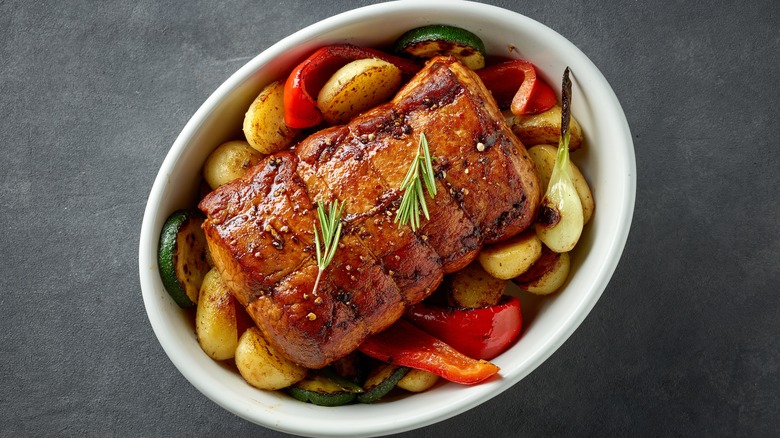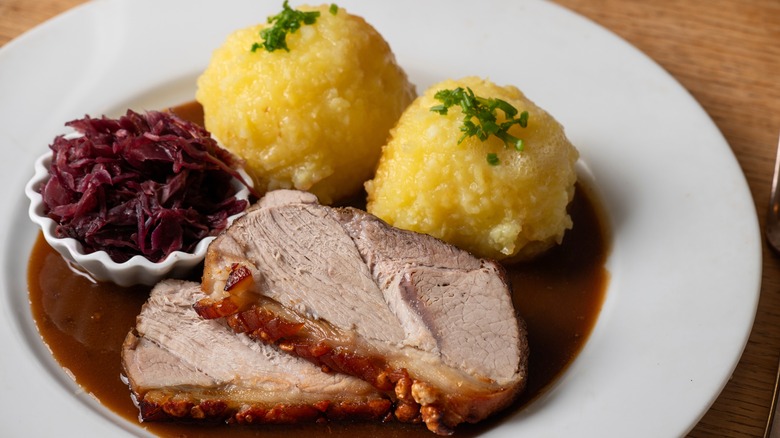Schweinebraten: The Bavarian Pork Dish That's An Oktoberfest Staple
Autumn means Oktoberfest, with its start signaled by a beer tradition at the opening ceremony. Today, Oktoberfest events can now be found all over the world, though the best place to celebrate will always be in the country where it all began: Germany. To be more specific, Oktoberfest was born in the city of Munich, stemming from the wedding of Princess Therese von Sachsen-Hildburghausen and the crown prince of Bavaria. Today, Bavaria is the largest state in Germany, and Munich is home to the world's premiere Oktoberfest gathering. If you can't make it there, the least you should do is eat like a Bavarian.
Bavarian cuisine is well known for its buttery pretzels and cream-filled donuts, but when it comes to a proper Oktoberfest main course, Schweinebraten is king. Schweinebraten (pronounced SHVINE-uh-BRAHT-en), is a pork roast that's traditionally cooked low and slow in an onion and dark beer sauce. The pork is seasoned with classic German flavors like mustard and caraway seeds. The cut of meat used is flexible, with loin roast and shoulder being the most common options. Pork shoulder is particularly prized for the top layer of fat that turns into crackling in the oven. It's warm, hearty, and the perfect anchor for an Oktoberfest meal — with the right sides, of course.
The traditional accompaniments for Schweinebraten
Schweinebraten can be served with various sides, and it's sometimes even roasted with vegetables. That said, the two most traditional accompaniments for Schweinebraten are sauerkraut and potato dumplings. Sauerkraut is perhaps the most famous side dish in all of German cooking, and one that you should be familiar with if you've ever tried making a reuben sandwich. Made from fermented cabbage and seasoned with caraway, its acidic tang helps cut through some of the fatty richness of the meat while also building on the seasonings.
The other traditional side dish for Schweinebraten is German potato dumplings. Known as Kartoffelkloesse, they look like larger versions of Italian potato gnocchi. However, unlike gnocchi, the dough for Kartoffelkloesse is seasoned, traditionally with a pinch of nutmeg. The dumplings are pleasantly soft and pillowy and served with brown butter. Pair them with sauerkraut and Schweinebraten — and a pint of beer, of course — and you're doing Oktoberfest like a true Bavarian.

